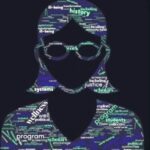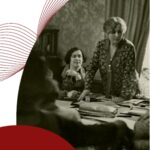 The 20th Berkshire Conference on the History of Women, Genders, and Sexualities (Web)
The 20th Berkshire Conference on the History of Women, Genders, and Sexualities (Web)
Time: 18.-21.06.2026
Venue: Northwestern Univ., Evanston, IL
Proposals by: 31.01.2025
What does a well society – or wellness in a socially just society – look like? These are profound questions of great magnitude and consequence whether we are examining the past or abiding in the present. And they are quite definitely weighty matters as we consider and construct, right here and now, our individual and collective human- and eco-futures. The organisers invite historical, intellectual, artistic, activist, and world-building contributions that define and explore wellness, well-being, and care in relationship to the personal, interpersonal, societal, human-centric, and eco-centric.
At the 2026 „Big Berks“, the organisers are starting from these three foundational premises: We want to get well. We know it’s a weighty matter. And we want to get clearer about what this means by investigating, dialoguing, and funning together. In the tradition of Kitchen Table Press (Barbara Smith, Beverly Smith, and Audre Lorde), the organisers welcome you to sit down together to be in conversation to co-create kitchen table history. They invite scholars, activists, and artists of all persuasions, and especially graduate students and early career colleagues to collaborate and be nourished and nourish each other. Read more … (Web)
You might consider the following prompts:
- Historical narratives, interpretations, and analyses we create: shifting frameworks and „states of mind“ toward wellness.
- Re-imagining power and the -isms, informed by our lives, to create a more holistic history and historical record.
- Decentering people as the sole focus of history: exploring alternate approaches such as eco-centric realities (e.g. remembering and belonging linked to microbes, animals, ecology, and the Earth).
- Investigating strategies of the past to deal with local and world political systems and their discriminatory, unequal, oppressive, and dystopian contexts.
- Healing from trauma, harm, and toxic environments: identifying ideological dogmatism, the ill-politics of revenge interpersonally and systemically; Continue reading

 EMHIS Lunch Webinar Series: Entangled Media Histories – Online Seminar
EMHIS Lunch Webinar Series: Entangled Media Histories – Online Seminar  Büro für Gleichstellung und Familie, Otto-von-Guericke-Univ. Magdeburg, Mareike Fingerhut-Säck und Bettina Hitzer
Büro für Gleichstellung und Familie, Otto-von-Guericke-Univ. Magdeburg, Mareike Fingerhut-Säck und Bettina Hitzer  The „Hidden lives: domestic servants in the European country house, c.1700-1850“-Network
The „Hidden lives: domestic servants in the European country house, c.1700-1850“-Network  Institut für Ungarische Geschichtsforschung in Wien; Collegium Hungaricum
Institut für Ungarische Geschichtsforschung in Wien; Collegium Hungaricum